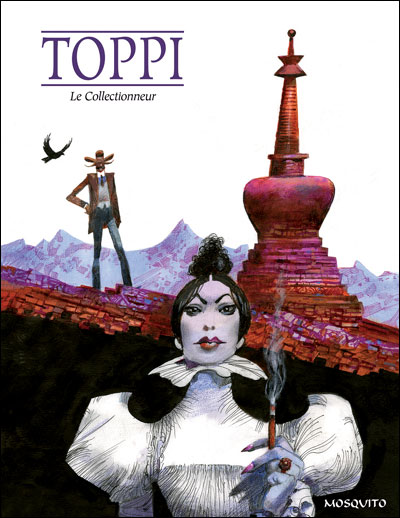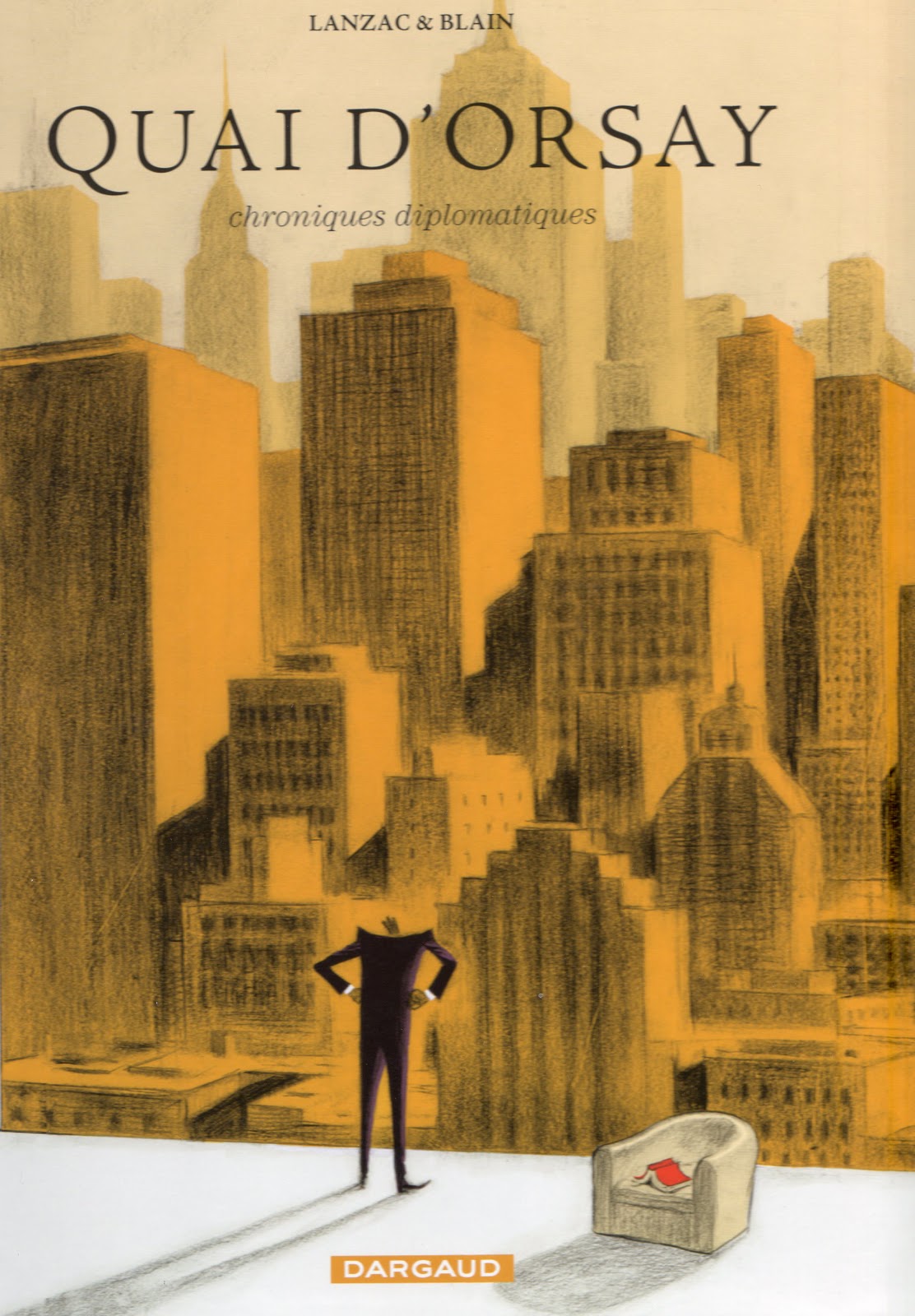September 30th, 2013 § § permalink

I’ll be reading from French fabulist Georges-Olivier Châteaureynaud’s story “An Occasional Icarus†tonight at San Francisco’s Haight favorite, indie darling The Booksmith. The event starts at 7:30, and the illustrious lineup includes Anthony “A Constellation of Vital Phenomena†Marra, Karen Tei “Tropic of Orange†Yamashita, and Zachary “The Lost Books of the Odyssey†Mason, who along with Châteaureynaud and forty-six other writers have stories in Kate Bernheimer’s latest anthology, XO Orpheus. This follow-up to the World Fantasy Award-winning My Mother She Killed Me, My Father He Ate Me (which tackled fairy tales) gives timeless myths a modern day spin.
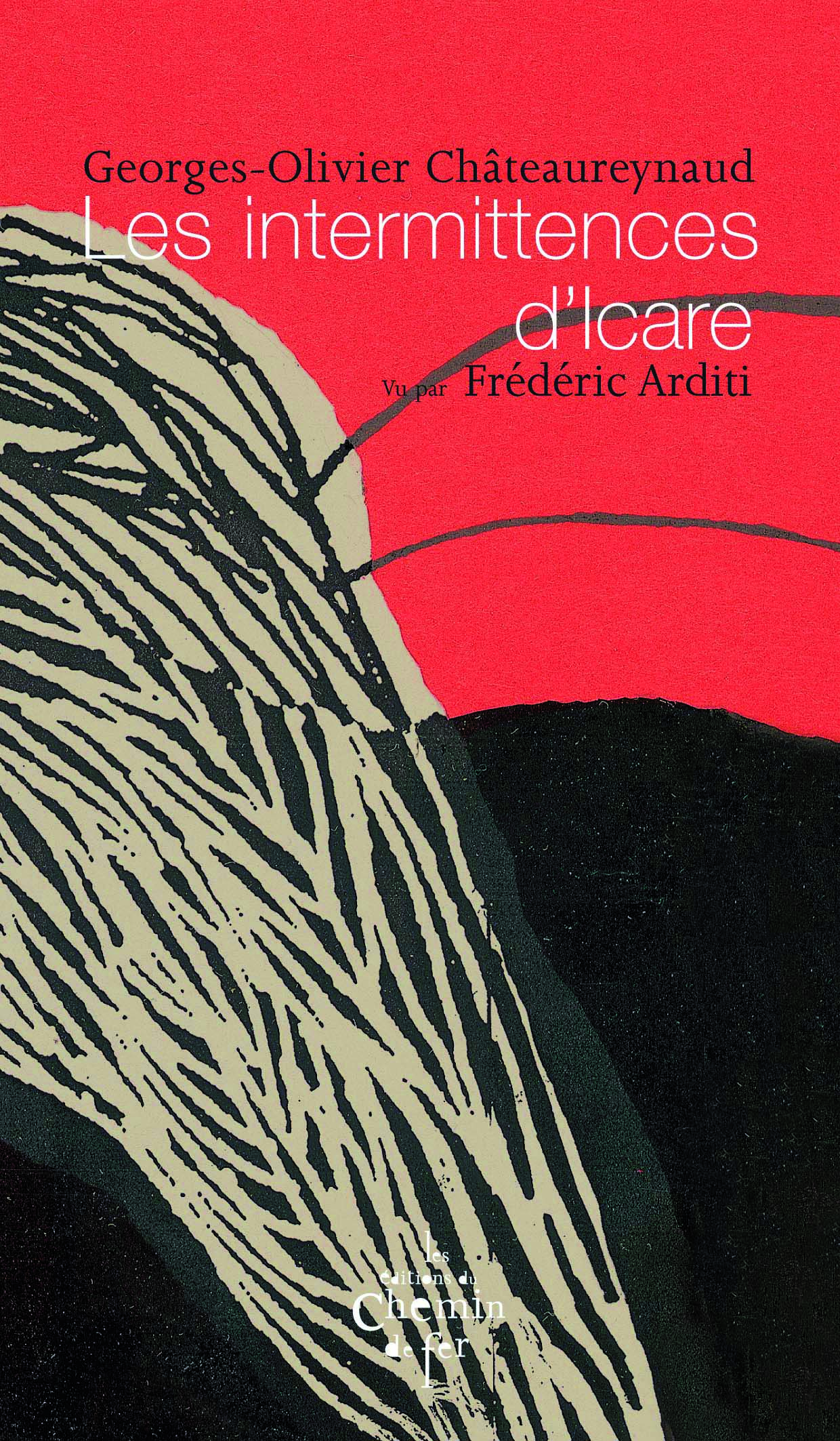
“An Occasional Icarus†is Châteaureynaud’s fifth story to appear in English since the 2010 collection A Life on Paper from Small Beer Press. It was originally published as a chapbook in 2006 by the small French press Les Éditions du Chemin de Fer, in an imprint pairing single stories by noted short story writers with illustrators.
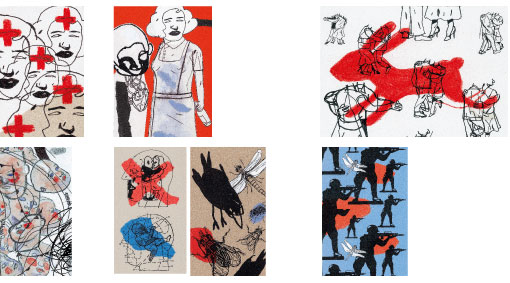
Some of Frédéric Arditi’s illustrations for Châteaureynaud’s “Les Intermittences d’Icare†can be seen above. The story will be collected this coming fall in the author’s latest book from his longtime publisher Grasset, his eighth full-length story collection: tentatively, whimsically entitled Young Codger on a Wooden Rock.
Come join us! Tonight, you can be a Haight-er.
September 24th, 2013 § § permalink
Courtesy of Mon Maçon Était Illustrateur [My Mason Was an Illustrator], a French tumblr about freelancing. English remix by yours truly.
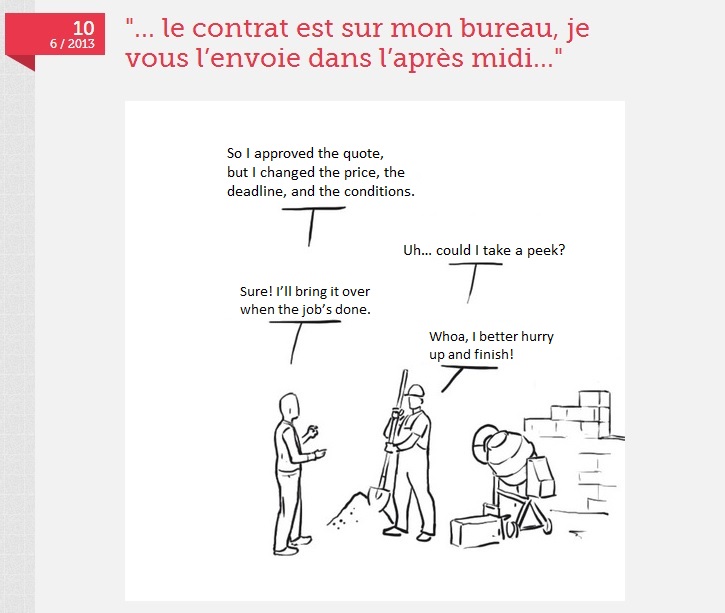
September 22nd, 2013 § § permalink
So, somewhere during a particularly busy summer workwise, I fell in love with a French tumblr hilariously lamenting the pitfalls of the freelance life. It’s called “My Mason Was an Illustrator (And He Kept Some Good Habits),” the idea being that the absurdity and abusiveness of certain contractual terms, which clients regularly ask of freelancers without batting an eye, would be plain as day if displaced into a context of more material labor. The titular mason, his submissive “good habits” intact from years of soul-crushing illustration work, knows his place. Having fully flagellated this horse of a joke past death by overexplanation, I’ll stop here, and just give an example I translated in tribute, which lends its title to this post:
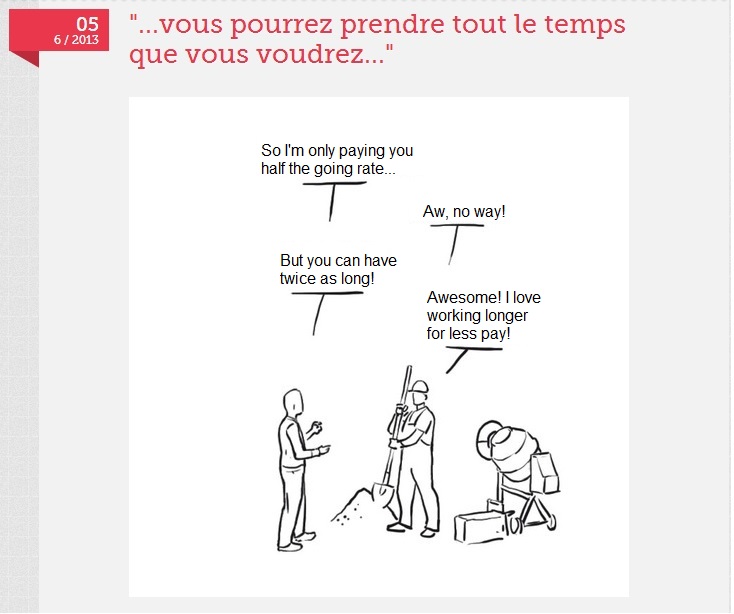
The series of simple, single-panel cartoons that with their laddered, rapid-fire dialogue and faceless figures recall a clip art Ruppert & Mulot. I won’t claim I’ve personally suffered all the indignities the Mason has at clients’ hands, but the problems depicted are very real in creative and other less “tangible” industries–which only makes the comics bitterer and funnier. The creator, who self-identifies as a “freemason-illuminatustrator,” said in an interview at the lit/design/typography review Tind, “As a doodler, I owe it to myself to be a whiner, and I love complaining. In reality, there’s nothing wrong; everything’s great.” His punchlines are similarly straightfaced.
As a creator, he anticipated my unlicensed tribute in this cartoon, a paean to web ethics: “Use this image, I love it, I found it online…”
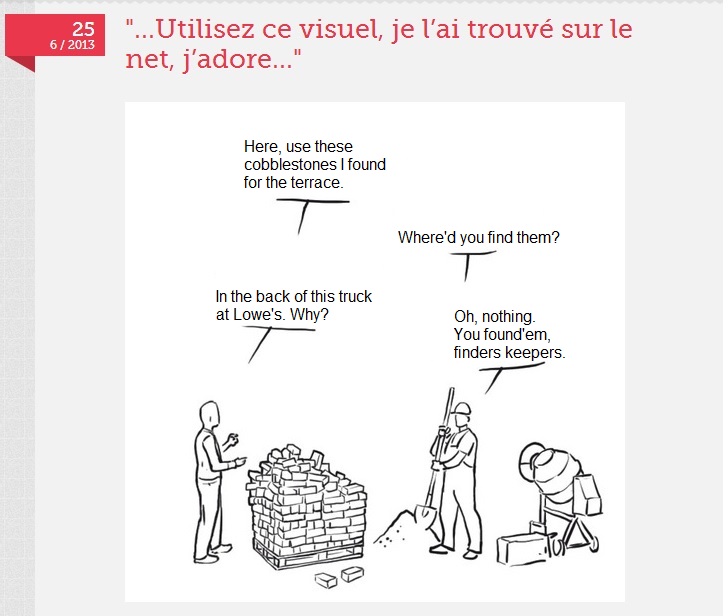
As a designer, I hope he’ll forgive me the hash I’ve made of his art with my limited means (read: Microsoft Paint) by lettering with Arial rather than Helvetica.
September 21st, 2013 § § permalink

“Icarus flies once more,†begins Penguin’s press release for Kate Bernheimer’s anthology XO Orpheus. It goes on:
Aztec jaguar gods again stalk the earth. An American soldier designs a new kind of Trojan horse—his cremains in a bullet. Here, in beguiling guise, are your favorite mythological figures alongside characters from Indian, Punjabi, Inuit, and other traditions.
Exciting, right? In XO Orpheus, “Fifty leading writers retell myths from around the world in this dazzling follow-up to the bestselling My Mother She Killed Me, My Father He Ate Me,†which won the World Fantasy Award in 2011. Georges-Olivier Châteaureynaud’s story “An Occasional Icarus†features in a star-studded table of contents including Aimee Bender, Emma and Peter Straub, Heidi Julavits, Maile Meloy, Joy Williams, Sheila Heti, Edith Pearlman, Ben Loory, Brian Evenson, and more. I’m delighted to have gotten Châteaureynaud into this collection, as well as an excerpt from David B.’s The Armed Garden, from Kim Thompson’s Fantagraphics translation. Kate Bernheimer, founder and editor of the literary journal Fairy Tale Review, is the author of the story collections Horse, Flower, Bird and How a Mother Weaned Her Girl from Fairy Tales, among many other books. As she puts it:
If “xo†signals a goodbye, then xo Orpheus is a goodbye to an old way of mythmaking. Featuring talkative goats, a cat lady, a bird woman, a beer-drinking ogre, a squid who falls in love with the sun, and a girl who gives birth to cubs, here are extravagantly imagined, bracingly contemporary stories, heralding a new beginning for one of the world’s oldest literary traditions.
A starred review from Booklist says:
Edith Hamilton, the great classicist who made Greek mythology accessible, is officially put on notice by this explosive anthology of reimagined myths. Demeter, a divorced mom, struggles with the half-year custody of her daughter. Narcissus, a tart-tongued partier, offers lodging to a bewitching street urchin named Echo. And a Vietnam veteran, in the spirit of Daedalus, builds an emotional labyrinth for his son.
In this searing yet ebullient collection, contemporary authors and one graphic artist move beyond merely updating classic myths of multiple cultures by performing gut-rehabs while maintaining the stark, terrifying moments of fate-altering choices. Outsized appetites figure prominently—for power, perfection, or even one’s own children… The form is as inventive as the content… as these new myths attest, the frightening, timeless themes remain.
September 15th, 2013 § § permalink
A story by the recluse and outsider writer I profiled at Weird Fiction Review this summer is now up in the 50th issue of The Collagist, the online revue from Dzanc Books. Thanks much to editor Gabe Blackwell, I am delighted to have Bettencourt feature in such a lineup.
His tale, entitled “Incidents of Travel Among the Metamorphosians,†is a science-fiction fable of Calvino-esque whimsy. Topics covered: interstellar anthropology and tourism, accidental infidelity, dead cats, evolution, imitation, malleable (and living) architecture, divinity. A taste:
“They stared at us wide-eyed, when they had eyes; I remember that character with a phallus-shaped head, his mouth at the top of his skull, who spoke in a cavernous voice. ‘And your God,’ said he, ‘what became of him?’â€
September 15th, 2013 § § permalink
September 10th, 2013 § § permalink

At The Onion AV Club, recent Hugo-winning editor Jason Heller has some kind, considered words for Jérémie Dres’ travel memoir, published last year in Britain by SelfMadeHero and recently released in the US by Abrams. We Won’t See Auschwitz recounts the trip two French brothers of Jewish descent take to Poland in search of their roots, and what it means to be Jewish in Poland today.
The narrative structure is deceptively complex, much like Dres’ linework; fluid and uncluttered, his vivid renditions of himself, his brother, and those they encounter in Poland float in unframed panels across the page like untethered memories. The parallels to Jonathan Safran Foer’s Everything Is Illuminated are clear, but it isn’t just the graphic-novel format that sets Dres’ book apart; it’s his ability to more fully ponder the dimensionality, and the baggage, of his own identity. Ultimately, it’s the double meaning of the book’s title—the brothers’ anticlimactic avoidance of Auschwitz, plus the idealistic hope that a holocaust on that scale will never happen—that We Won’t See Auschwitz most poignantly probes.
Interestingly, the “double meaning of the book’s title” that Heller notes in closing is not present in the original French, Nous n’irons pas voir Auschwitz: literally, “We Won’t Go See Auschwitz.” The subtraction of a tiny active verb alters meaning… surely a case of gain in translation? Ttranslation (theory and practice) can only gain in contemporary discourse from being reframed as form of adaptation between the media of different languages, adaptation perhaps being the most common creative practice of our time. Currently, one of the contested criteria for the originality of derivative work (remix vs. adaptation) in adaptation theory is “added value.”
September 1st, 2013 § § permalink







